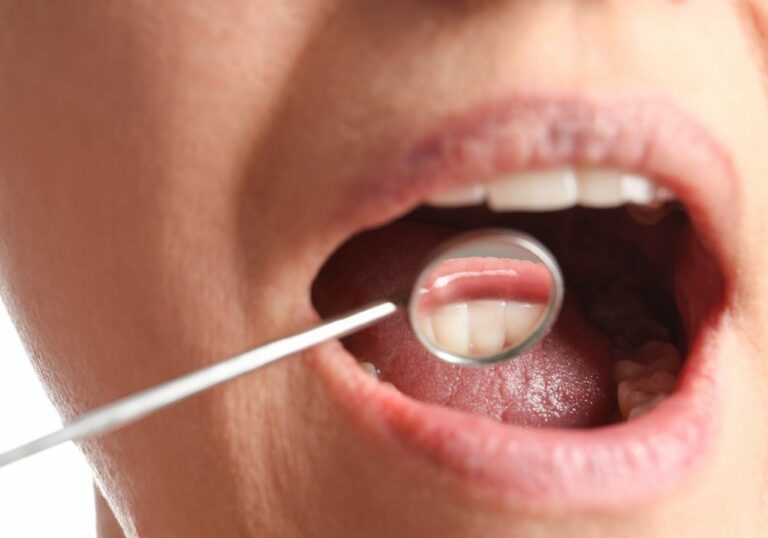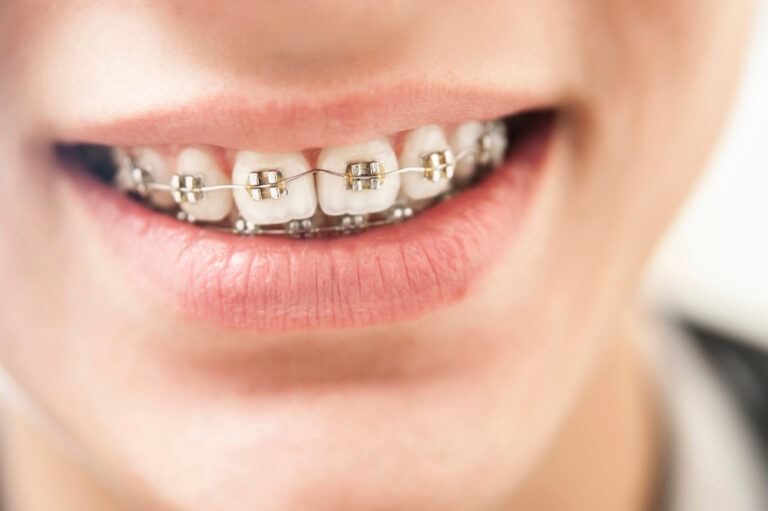Are you wondering if you can drink water after a tooth extraction with gauze? The answer is yes, you can drink water after a tooth extraction with gauze. In fact, it is important to stay hydrated to promote healing and prevent infection.
After a tooth extraction, your dentist will place gauze over the extraction site to help stop bleeding and promote clotting. You may be instructed to bite down on the gauze for 30-45 minutes after the procedure. Once the bleeding has stopped, you can remove the gauze and drink water. It is important to drink water regularly to stay hydrated and flush out any bacteria or food particles in your mouth. However, avoid using a straw as the sucking motion can dislodge the blood clot and delay healing.
Understanding Tooth Extraction
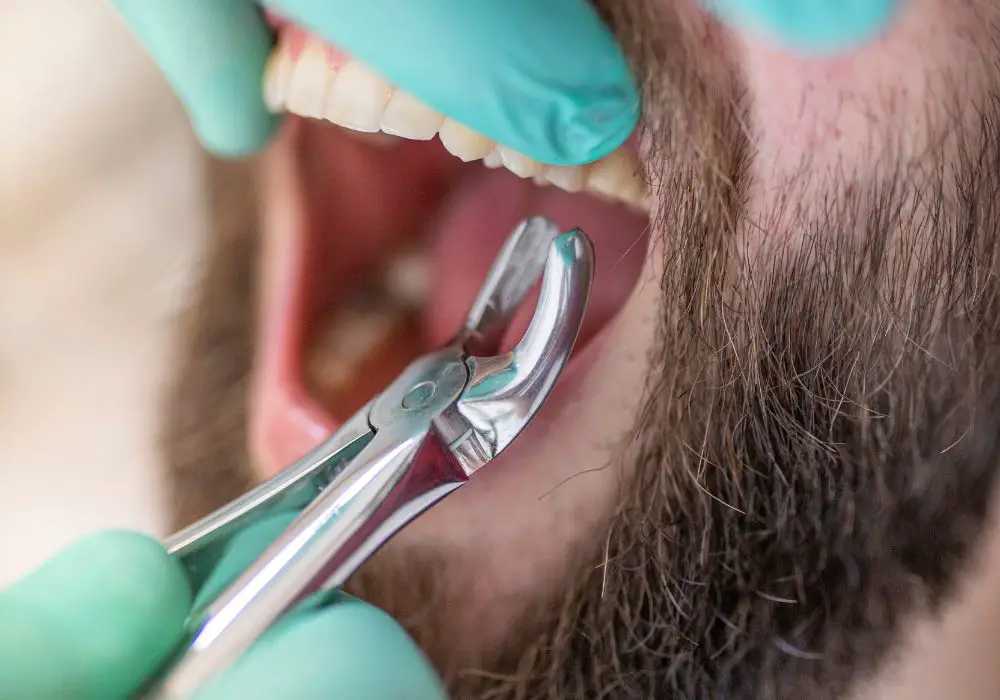
If you’re scheduled for a tooth extraction, you may be feeling nervous about the procedure and what to expect afterward. Tooth extraction is a common dental procedure that involves removing a tooth from its socket in the jawbone. It may be necessary due to tooth decay, gum disease, injury, or overcrowding of teeth.
Before the procedure, your dentist will numb the area with local anesthesia to minimize pain. If you’re feeling anxious, your dentist may also offer sedation options to help you relax. During the procedure, your dentist will use special instruments to loosen the tooth and then remove it from the socket.
After the extraction, your dentist will place gauze over the socket to help stop any bleeding. You will need to bite down on the gauze to apply pressure for about 30-45 minutes. This is important to promote clot development and stop bleeding.
It’s normal to experience some pain and swelling after the procedure. Your dentist may prescribe pain medication or recommend over-the-counter pain relievers to help manage discomfort. It’s also important to avoid smoking, drinking through a straw, or spitting, as these actions can dislodge the blood clot and delay healing.
Overall, tooth extraction is a safe and routine procedure that can help improve your oral health. With proper aftercare, you can expect to recover quickly and get back to your normal routine in no time.
Importance of Hydration
It is important to stay hydrated after a tooth extraction. Drinking water helps keep your body hydrated, which is essential for the healing process. It also helps keep your teeth clean and bacteria-free on top of keeping your mouth moisturized.
After a tooth extraction, you should drink plenty of water to keep the extraction site clear and prevent infection. However, you should avoid drinking through a straw since the sucking motion can disturb the extraction site and cause bleeding.
In addition to drinking water, you can also try drinking other fluids like coconut water or sports drinks that contain electrolytes. These fluids can help replenish the nutrients lost during the surgery and aid in the healing process.
It is important to note that you should avoid drinking alcohol or smoking after a tooth extraction, as they can delay the healing process and increase the risk of infection.
Here are a few tips to help you stay hydrated after a tooth extraction:
- Drink plenty of water throughout the day.
- Avoid drinking through a straw.
- Try drinking other fluids like coconut water or sports drinks that contain electrolytes.
- Avoid alcohol and smoking.
By staying hydrated, you can help promote the healing process and reduce the risk of complications after a tooth extraction.
Drinking Water Post Extraction
If you have recently undergone tooth extraction, you may be wondering when it is safe to drink water. Drinking water is essential to stay hydrated and promote healing, but it is important to follow proper aftercare instructions to avoid complications.
Immediate Aftermath
After tooth extraction, it is important to keep the gauze in place for at least 30-45 minutes to allow the blood clot to form. During this time, you should avoid drinking water or any other liquids to prevent dislodging the blood clot.
Once the gauze is removed, you can start drinking water. However, it is recommended to avoid using a straw, as the suction can dislodge the blood clot and delay the healing process. Instead, drink directly from a cup or bottle.
It is also important to avoid rinsing your mouth vigorously, as this can also dislodge the blood clot and cause bleeding. Instead, gently rinse your mouth with saltwater solution as directed by your dentist or oral surgeon.
After Gauze Removal
After the gauze is removed, you can drink water as needed to stay hydrated. It is important to drink plenty of water to promote healing and prevent dehydration.
However, it is still recommended to avoid using a straw for at least 24-48 hours after tooth extraction. You should also avoid drinking carbonated or alcoholic beverages, as these can irritate the extraction site and delay healing.
In summary, drinking water after tooth extraction is safe once the gauze is removed. However, it is important to avoid using a straw and rinsing your mouth vigorously to prevent dislodging the blood clot. If you have any concerns or questions about drinking water after tooth extraction, consult with your dentist or oral surgeon.
Things to Avoid While Drinking
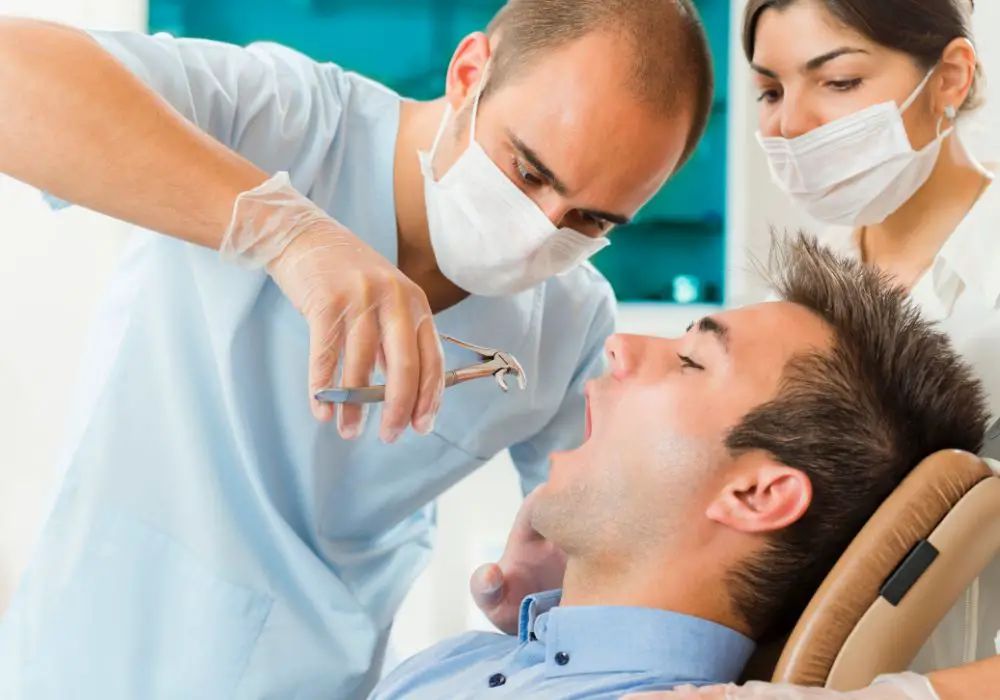
When it comes to drinking after tooth extraction, there are a few things you should avoid to ensure proper healing and prevent complications. Here are some things to keep in mind:
1. Using a Straw
Using a straw can create suction in your mouth, which can dislodge the blood clot that forms in the extraction site. This can lead to a painful condition called dry socket, which can delay healing and cause discomfort. To avoid this, drink directly from a cup or glass instead of using a straw.
2. Rinsing Your Mouth
Rinsing your mouth vigorously can also dislodge the blood clot and delay healing. Instead, gently swish a small amount of water in your mouth to rinse it out. You can also use an antimicrobial mouthwash as directed by your dentist.
3. Drinking Carbonated Beverages
Carbonated beverages can also dislodge the blood clot and delay healing. Avoid drinking soda, sparkling water, or other carbonated beverages for at least 24 hours after your tooth extraction.
4. Drinking Alcohol
Alcohol can interfere with the healing process and increase bleeding. Avoid drinking alcohol for at least 24 hours after your tooth extraction.
5. Drinking Hot Beverages
Hot beverages can increase blood flow to the extraction site and cause bleeding. Avoid drinking hot coffee, tea, or other hot beverages for at least 24 hours after your tooth extraction.
By following these tips, you can ensure proper healing and prevent complications after your tooth extraction. If you have any questions or concerns, be sure to contact your dentist for guidance.
Alternative Hydration Methods
After a tooth extraction, it’s important to stay hydrated to promote healing. However, drinking water with gauze in your mouth can be uncomfortable and difficult. Fortunately, there are alternative hydration methods that can make it easier for you to stay hydrated without causing any discomfort.
One option is to drink water using a cup or a straw. If you choose to use a straw, make sure to wait at least 24 hours after your extraction before doing so. This will help prevent dislodging the blood clot that forms in the extraction site, which is necessary for proper healing.
Another option is to consume hydrating foods and drinks that don’t require chewing. For example, broths, soups, and smoothies can provide hydration and nutrients without putting any strain on your extraction site. You can also try drinking coconut water or sports drinks that contain electrolytes to help replenish fluids and minerals lost during the healing process.
It’s important to avoid drinking alcohol, caffeine, or carbonated beverages after a tooth extraction, as they can interfere with the healing process and cause discomfort. Instead, stick to hydrating liquids and soft foods until your extraction site has fully healed.
Remember, staying hydrated is crucial for proper healing after a tooth extraction. By using alternative hydration methods and consuming hydrating foods and drinks, you can promote healing while avoiding discomfort and potential complications.
Repercussions of Not Following Guidelines
Not following the guidelines after tooth extraction can lead to various complications. Here are some of the repercussions of not following the guidelines:
Delayed Healing
If you do not follow the guidelines, it can lead to delayed healing of the extraction site. Delayed healing can result in pain, discomfort, and swelling. It can also increase the risk of infection.
Dry Socket
Dry socket is a painful condition that occurs when the blood clot at the extraction site is dislodged or dissolves before the wound has healed. If you drink water or any other fluids with gauze in your mouth, it can dislodge the blood clot and lead to dry socket.
Infection
If you do not follow the guidelines, it can increase the risk of infection. Drinking water or any other fluids with gauze in your mouth can introduce bacteria into the extraction site and increase the risk of infection.
Bleeding
If you drink water or any other fluids with gauze in your mouth, it can dislodge the blood clot and lead to bleeding. Bleeding can prolong the healing process and increase the risk of infection.
Pain and Discomfort
Not following the guidelines can lead to pain and discomfort. Drinking water or any other fluids with gauze in your mouth can cause irritation and discomfort.
In conclusion, it is important to follow the guidelines after tooth extraction to avoid complications. Drinking water or any other fluids with gauze in your mouth can lead to various complications. Therefore, it is best to avoid drinking water or any other fluids until the gauze is removed.
When to Seek Medical Attention
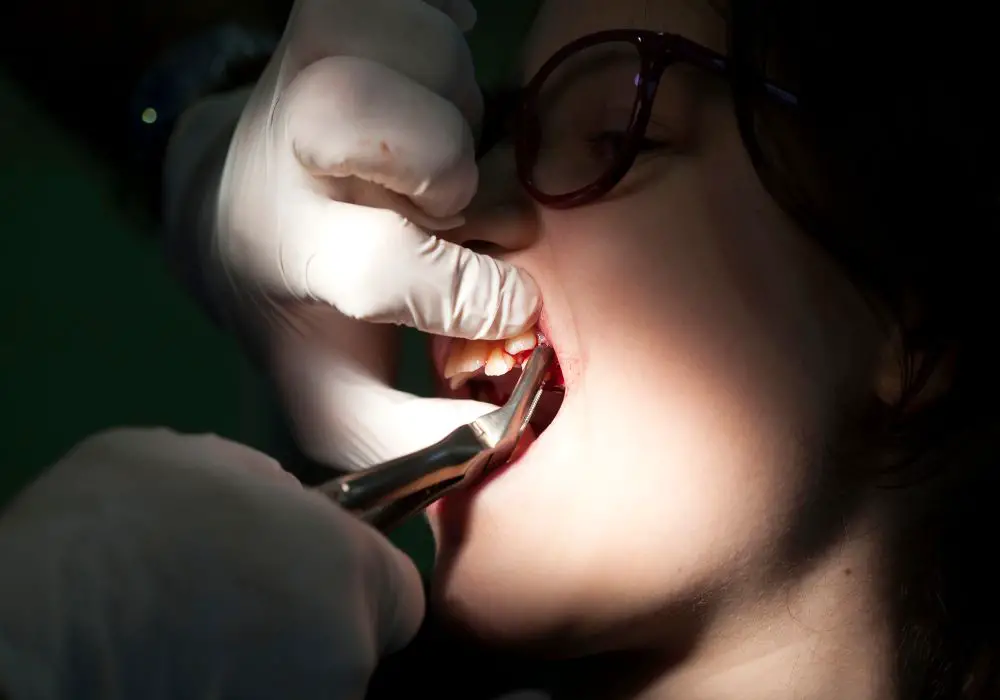
After a tooth extraction, it is normal to experience some pain and swelling. However, if you notice any of the following symptoms, it is important to seek medical attention immediately:
- Excessive bleeding that does not stop after applying pressure for 30 minutes.
- Severe pain that is not relieved by pain medication.
- Swelling that worsens after the first few days.
- Fever or chills.
- Nausea or vomiting.
- Difficulty breathing or swallowing.
If you experience any of these symptoms, contact your dentist or oral surgeon immediately. In some cases, you may need to go to the emergency room.
It is also important to follow your dentist’s instructions for aftercare closely. Failure to do so can lead to complications such as dry socket, infection, or delayed healing.
Remember to avoid smoking, drinking alcohol, using a straw, or eating hard or crunchy foods during the first few days after your extraction. Stick to soft foods and drink plenty of water to stay hydrated.
By taking proper care of your mouth and seeking medical attention when necessary, you can ensure a smooth and speedy recovery after your tooth extraction.
Frequently Asked Questions
When can I spit after tooth extraction?
You should avoid spitting for at least 24 hours after the tooth extraction. Spitting can dislodge the blood clot that forms in the socket, which can lead to dry socket. Dry socket is a painful condition that can occur when the blood clot is dislodged, exposing the bone and nerves.
When to stop using gauze after wisdom tooth extraction?
You should use gauze for several hours after your wisdom tooth extraction to help absorb the blood and apply pressure. After a few hours, you can remove the gauze and replace it with a fresh piece if necessary. You can stop using gauze once the bleeding has stopped.
Do I eat with gauze in mouth after extraction?
You should not eat with gauze in your mouth after extraction. It can be difficult to chew with gauze in your mouth, and you may accidentally swallow the gauze. Eating soft foods is recommended for the first 24-48 hours after the extraction.
Can I go to sleep if my tooth extraction is still bleeding?
You can go to sleep if your tooth extraction is still bleeding, but you should elevate your head with pillows to reduce bleeding. You can also use gauze to apply pressure to the socket. If bleeding persists, contact your dentist.
How to change gauze after tooth extraction?
To change gauze after tooth extraction, gently remove the old gauze and replace it with a fresh piece. Bite down on the new gauze to apply pressure to the socket. Change the gauze as needed until the bleeding stops.
Does gauze prevent dry socket?
Gauze can help prevent dry socket by absorbing blood and applying pressure to the socket. However, it is not a guarantee that dry socket will not occur. Follow your dentist’s instructions for aftercare to reduce the risk of developing dry socket.



